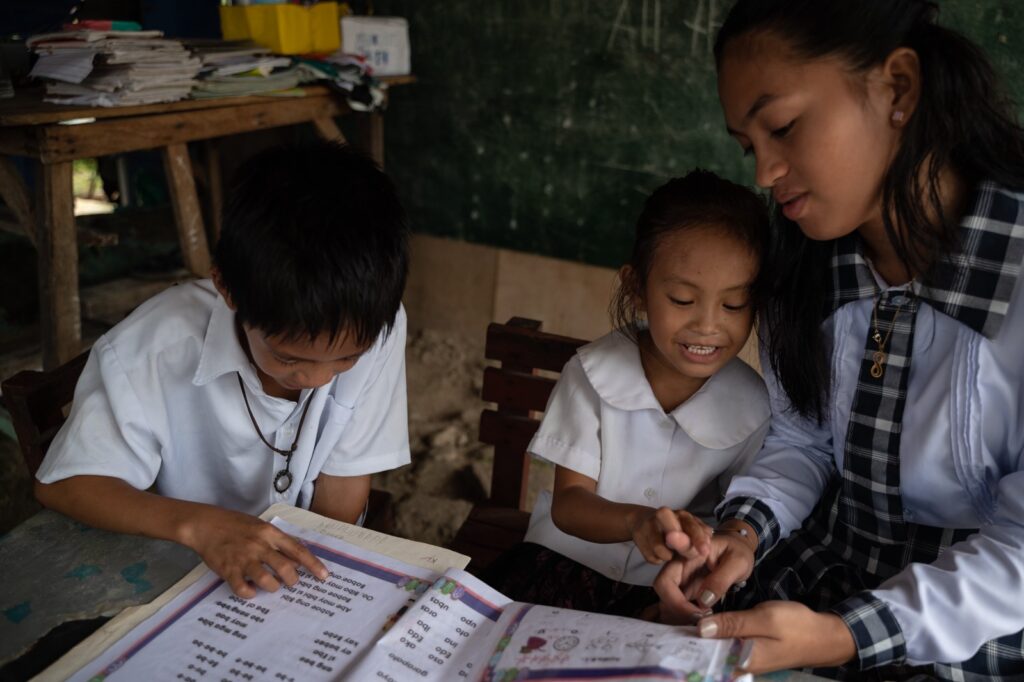Human development revolves around elevating people’s capabilities, broadening the scope of their choices, upholding their freedom and advocating for their human rights.
This developmental concept transcends mere economic growth, placing people’s lives at its core.
In the Philippines, as in the whole Asia Pacific, human development has been a tale of progress, disparity and disruption.
Today, we are faced with a convergence of escalating global tensions, deteriorating climate conditions, regional debt distress and persisting inequality.
This convergence is exerting considerable strain on development gains achieved in the past decades.
This not only jeopardizes the attainment of the Sustainable Development Goals, but also creates a potential for unprecedented setbacks in human development, economic stability as well as climate resilience, unless prompt and extensive corrective measures are implemented.
The UNDP 2024 Regional Human Development Report in the Philippines is launched at a time of great need.
The 2024 Regional HDR delivers a compelling narrative: the Asia Pacific Region — known for its stellar economic performance and growth in the past decades — is home to half of the world’s multidimensionally deprived, totaling 500 million people.
Across the region, approximately 800 million women are not part of the workforce, while roughly 1.3 billion people rely exclusively on informality for their livelihoods.
Aptly entitled “Making our Future — New Directions for Human Development in the Asia-Pacific,” the 2024 Regional HDR paints a qualified picture of long-term progress, but also persistent disparity and widespread disruption, foreseeing a turbulent development landscape and urgently calling for new directions to boost human development.
Over the last three decades, the HDI of Asia Pacific has surged by 19 points — the greatest leap in the world.
Rapid economic growth, increase in adult literacy rates, and increased life expectancy rates have significantly contributed to major improvements in human development in the region.
For the Philippines, the HDI score has increased from 0.598 in 1990 to 0.699 in 2021, growing over those three decades alongside the Asia-Pacific Region’s trajectory.
It declined slightly under the impact of Covid-19, keeping it within the group of countries with medium levels of human development.
The Philippines ranks 7th in the Asean, 16th in Asia Pacific, and 116th in the world.
Beyond the progress in the region, widespread disparities and persistent structural exclusion remain.
Worsened by the pandemic and the rising cost of living amid global crises, persistent challenges of poverty and inequality, gender biases and a large informal sector make it a challenge for the region to keep on track to achieve the SDGs by 2030.
To bring about the needed change, the report calls for three new directions in human development in the region: to put people at the heart of development, to recalibrate growth strategies to generate more jobs while keeping within planetary bounds, and to focus relentlessly on the politics of reform and the science of delivery to turn ideas into practice.
In the Philippines, these new directions can foster four major transformations, including a larger and faster green economic and energy transition; strengthened resilience of families and communities from shocks and disasters; accelerated innovation and digital evolution as tools to accelerating and sustaining growth; and a more future-ready governance that can help to accelerate human development.
The Philippines can gain from decisively addressing the issues which prevent ordinary Filipinos from improving their lives through quality jobs and more secure livelihoods.
As the Philippines is expecting to join the ranks of upper middle-income countries soon, a key challenge will be to tackle the lingering issues of precarity and inequality head-on.
Doubling down on investments in education, health, and other human capital development needs will not only address a feeling of job insecurity among certain Filipinos, but also to further improve social mobility.
This new path also means strengthening the resilience of families and communities from shocks and disasters, which are becoming more frequent. Countries like the Philippines — which bear the brunt of climate change — face an existential crisis that can only be solved through urgent collective action at a global scale.
The Philippine government has wagered on innovation as a primary tool to accelerating and sustaining growth.
However, to ensure that this growth benefits all Filipinos requires innovative approaches that are, by their nature, inclusive and driven by the grassroots.
Innovation will need to contribute to transforming communities in ‘last mile’ areas into effective levers of local development.
Finally, future-ready governance can help to accelerate change and human development in the Philippines.
Delivering change requires making public institutions, especially at the local level, more fit for the needs, the pace of change, and the capacity to deliver prosperity to communities at risk of being left behind.
q q q
Ramachandran is UNDP resident representative in the Philippines. The UN agency has been working to ensure better lives for Filipinos since 1965, committed to helping the country achieve UN’s Sustainable Development Goals, as well as national development priorities as set out in the Philippine Development Plan.
